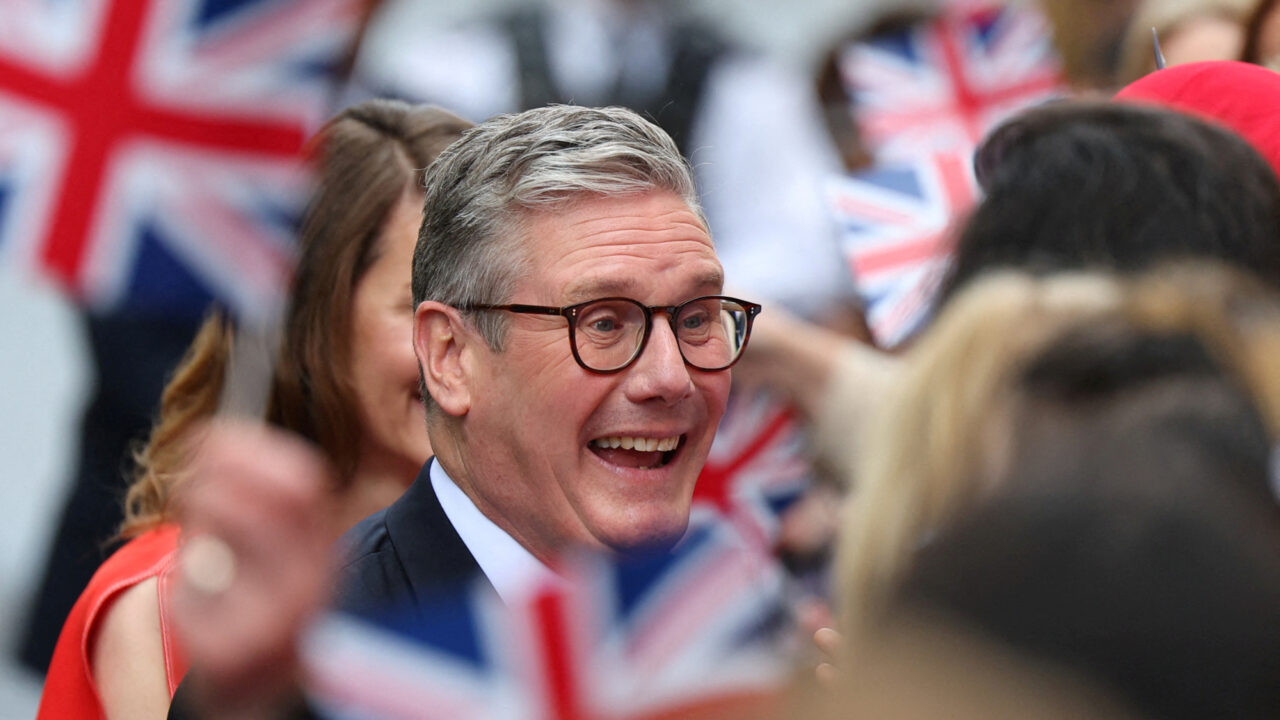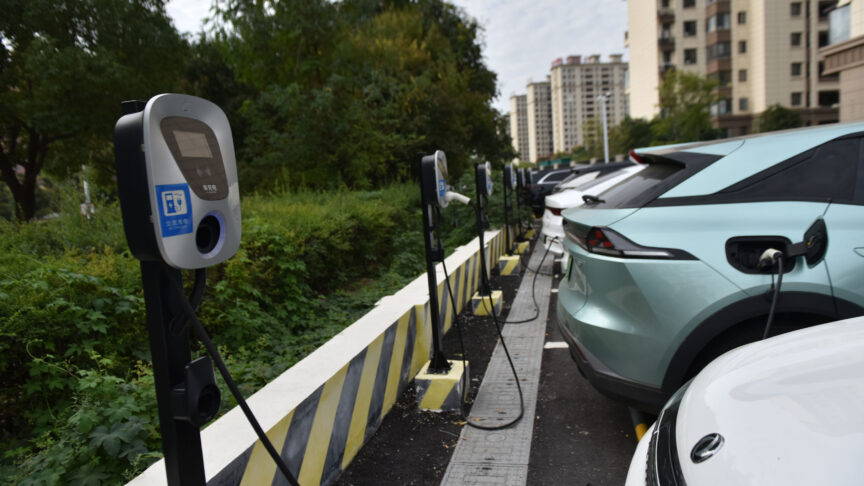Starmer’s priorities: Fixing Britain will come first
As Keir Starmer assumes office, myriad international questions will land on his desk – but don’t expect these to be his immediate focus
Seldom has a neophyte prime minister been plunged so rapidly into so much international diplomacy. Keir Starmer will scarcely have sussed out the geography of his new home at No. 10 Downing Street, or appointed his cabinet, before he flies to Washington for NATO’s 75th anniversary summit, taking place from 9-11 July. Starmer is then barely home again before hosting some 50-odd leaders from across Europe for the fourth summit of the European Political Community on 18 July.
This constellation of national leaders will have heard generally reassuring assessments of the new man in Downing Street from their ambassadors in London. The United Kingdom’s general election campaign was strikingly introverted; foreign and defence policy took up little bandwidth, largely because Labour had spiked Conservative guns by taking all the right pledges, even before the campaign began. In his resistance to Vladimir Putin and support for Ukraine; commitment to NATO, the transatlantic alliance, and Britain’s nuclear weapons; and more defence spending (2.5 per cent of GDP is the target, though he has not given a timeline), Starmer ticked all the right boxes. Only in signalling a wish for rapprochement with Europe did he diverge from previous Conservative lines, and this would only be to “make Brexit work”: he has ruled out a return to the EU’s single market or customs union.
At a time when other Western democracies are wracked with problems and uncertainties, Britain’s new government – with its thumping parliamentary majority – looks like an unusually safe pair of hands. Could this be the moment for Starmer, with his newly filled contacts book, to assume an international leadership role?
While no prime minister can wholly ignore foreign and defence matters, Britain’s new government comes to power all too conscious of the dire state of the country’s economic and fiscal position
Well, no. Britain’s new government comes to power all too conscious of the dire state of the country’s economic and fiscal position. Sky-rocketing food, housing, and energy prices have contributed to a cost-of-living crisis and ever-deepening poverty, while public services – from health, to education, to the criminal justice system – are in varying degrees of collapse. Both the tax burden and ratio of debt to GDP are at levels not seen since the aftermath of the second world war. Starmer has pledged to escape this doom-loop by “kick-starting economic growth”, with private investment playing a key part. This will be a huge task, but don’t bet against him. Over the last four years he has applied a single-minded discipline to making the Labour Party electable again – expect a similar dogged focus on the task of reviving Britain’s economy. In the meantime, don’t expect him to be distracted by the drama of international affairs.
Of course, no prime minister can wholly ignore foreign and defence matters. An early trip to Berlin to sign a bilateral security deal, and a visit to Samoa in October for a Commonwealth summit, will jostle for space in Starmer’s diary. And much of what goes on in the wider world inevitably affects the domestic agenda – thus, the Labour government is seeking a rapprochement with the EU. There is talk of “an ambitious UK-EU security pact”, and foreign secretary David Lammy has previously spoken of “a new geopolitical partnership with Europe.” Though ill-defined, these overtures should help to rebuild trust with Europe, which is essential if Labour is to realise its hopes of easing some of the Brexit restrictions which have damaged trade with the EU. Here, the wish-list is more precise: new arrangements for plant, animal, and chemical trade, and mutual recognition of professional qualifications.
The new government will also have to pay attention to the muddle which is Britain’s defence. A former senior official has just condemned the UK’s armed forces as unfit for “conflict of any scale”, while the ministry of defence’s chronic inability to limit its ambitions to any foreseeable future budget, or to avoid massive cost overruns on its major procurements, has caused the National Audit Office to conclude that “the Ministry of Defence’s Equipment Plan for the next decade is unaffordable and it is facing the largest budget deficit since ‘the Plan’ was first published in 2012.” It has not helped that, following former prime minister Boris Johnson’s post-Brexit “Global Britain” fantasy, no one has been able to say what is really expected of Britain’s armed forces – or, for example, what Britain’s massive new aircraft carriers are actually for.
Labour will carry out its own strategic defence review. The party has already suggested that Johnson’s “tilt to the Indo-Pacific” will be subordinated to a renewed defence focus on Europe, though Labour will remain keen on the trilateral security partnership between Australia, the UK and the United States (AUKUS), and collaboration with Japan. This is not least because British defence companies identify more opportunities there than in trying to get involved with the EU’s own stuttering efforts at defence industrial cooperation.
So Starmer will not be able to give himself entirely to the overriding mission of kickstarting growth. These are turbulent and unpredictable times, and the new prime minister will do what he can to use his time, and his attention, economically. He will spend the coming days getting briefly acquainted with his fellow international leaders. But as the oxygen masks tumble from the ceiling across the Western world, expect Starmer to concentrate on fixing his own firmly in place before worrying too much about his neighbours.
The European Council on Foreign Relations does not take collective positions. ECFR publications only represent the views of their individual authors.



